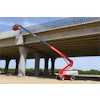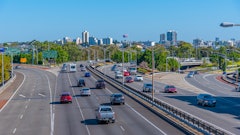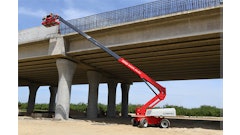
By Debbie Messina
The Virginian-Pilot
Virginia ranks dead last among all states for spending transportation stimulus money, with just 16.5 percent of its federal award going toward actual construction through the end of August.
Gov. Timothy M. Kaine and the state were scolded for the performance in a letter dated Thursday from U.S. Rep. James L. Oberstar, chairman of the House Transportation and Infrastructure Committee. States must submit regular progress reports to the committee.
Nationally, 42.7 percent of American Recovery and Reinvestment Act highway funding has been spent building projects so far.
"We have watched many States move aggressively to use these funds. ... Regrettably, Virginia is not one of these States," wrote Oberstar, a Minnesota Democrat .
"I strongly urge you to refocus your efforts to implement the Recovery Act and use the available funds to create and sustain family-wage jobs," the letter stated. "These jobs are critical to Virginia's and the nation's long-term economic growth."
Virginia was also the last state to identify projects and submit its request for stimulus money in June.
The commonwealth has lagged others in jumping on the infusion of federal money even though it has struggled to fund transportation projects in recent years. Over the past two years, $4.6 billion has been cut from its six-year road-building plan, which stands at $7.4 billion, because of shrinking state revenue.
"Speed should not be the only criteria," Virginia Transportation Secretary Pierce R. Homer said. "We've met every federal requirement and deadline.
"We made a deliberate choice to play for the long haul."
Homer said that while money is being put into quick repaving projects, as in most states, there also is an effort to select other projects that provide "lasting economic benefit."
Those include highway widening projects into Fort Eustis on the Peninsula, Fort Lee in Petersburg and Fort Belvoir in Northern Virginia, where there are prospects for job growth.
"Those are not going to move as fast as laying down 2 inches of asphalt on top of an existing roadway," Homer said.
Virginia Department of Transportation spokesman Jeff Caldwell said some states have progressed faster because they used federal stimulus money to replace state funding on existing projects.
"We started from scratch on our projects so we're truly creating new jobs," said Gordon Hickey, Kaine's spokesman .
The road-widening projects had been planned for years but were not yet under way.
Kaine responded to Oberstar in a letter Friday:
"While Virginia might appear to fall behind other states according to the Committee's calculations, we assure you the Commonwealth is implementing ARRA funds according to the intent of the legislation by creating new jobs with accountability and transparency."
Kaine added that, as of the end of September, Virginia ranked in the middle of states on the rate of obligation of funds according to a report by the U.S. Department of Transportation.
Virginia was awarded $694.5 million for highway infrastructure investment in the Recovery Act more than six months ago. According to the state's submission to the transportation committee, 42.9 percent of the total has been out to bid, 19 percent of it is under contract and 16.5 percent has been spent on construction.
Nationally, $26.8 billion was allocated for highways and bridges - 65.2 percent of the total has been out to bid, 48.9 percent of it is under contract and 42.7 percent has been spent on projects that have begun .
Hampton Roads projects receiving stimulus money include improvements to the Interstate 264/Lynnhaven Parkway interchange in Virginia Beach; repairing bridges in Chesapeake and Norfolk, including the Norview Avenue Bridge and the Brambleton Avenue pedestrian bridge; and roadway repaving and signal timing throughout the region.
Hickey said there's a semantic issue with some of the terms used to measure progress.
"The question comes down to what 'spend' means," he said, adding that sometimes funds are spent but not yet reimbursed.
Hickey said the governor is happy with Virginia's progress.
"We haven't missed any deadlines," he said. "We've hit all benchmarks. Things are doing well."
States were tasked with obligating half the funds that are directly under their control by June 29 or risk forfeiting money. Virginia met that requirement. Some of each state's share goes directly to the Metropolitan Planning Organizations in each region. In Virginia, that amounts to $118 million, according to Reta R. Busher, VDOT chief financial officer.
Another standard is to complete the projects within three years - by Feb . 17, 2012.
"We're moving this along as quickly as we can," Hickey said. "We want to do it right. We're taking a certain amount of care with this."
Debbie Messina, (757) 446-2588, [email protected]
Virginia received $694.5 million in federal stimulus money for transportation projects.The state has spent the smallest percentage of its stimulus money as of the end of August, with 16.5 percent spent. Nationally, 42.7 percent of transportation dollars have been spent. 16.5 percent of the stimulus money has been spent, according to the state. 19 percent of the money is under contract. 42.9 percent of Virginia's total has been put out to bid.










![Hcm Ax Landcros Dual Branded Logo[25]](https://img.forconstructionpros.com/mindful/acbm/workspaces/default/uploads/2025/11/hcmaxlandcros-dual-branded-logo25.Qhg3vUCjoK.jpg?ar=16%3A9&auto=format%2Ccompress&bg=fff&fill-color=fff&fit=fill&h=135&q=70&w=240)




